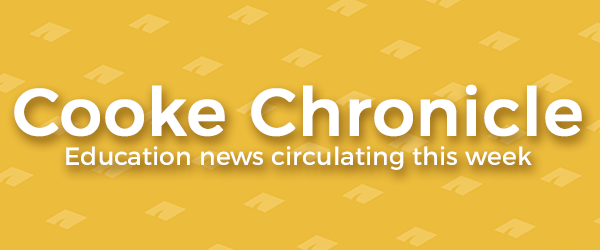Tax reform, net neutrality, and college access

December 15, 2017 – Here’s our weekly roundup of education news you may have missed. Experts describe how legislative changes may affect education. Students with financial need get some relieving news from test companies, but still face the “leaky FAFSA pipeline.”
Receive the Cooke Chronicle each week in your inbox: Subscribe here.
Elementary & Secondary Education:
- In The New York Times, Georgetown University McCourt School of Public Policy Associate Professor Nora Gordon states that the tax reform proposals would “would make ZIP codes matter more than ever” regarding the quality of public education.
- A year end wrap-up from The 74 lists 10 charts from education research that questioned the authors’ previously “cherished assumptions.”
- Teachers, educators, and industry experts discuss how ending net neutrality could impact education in NPR and EdSurge.
Higher Education:
- Education Week reports that the College Board and ACT Inc., the companies responsible for the SAT and the ACT respectively, “have announced that they’ll expand—or begin—programs to allow students to send their scores to colleges for free.”
- A widely-shared article in The Chronicle of Higher Education details how the FAFSA verification process can derail low-income students from enrolling. TheNational College Access Network‘s (NCAN) related infographic on the topic “shows that of an estimated 1.8 million low-income high school seniors, just 548,000 (31%) will arrive on-campus using the Pell Grant for which they are eligible.”
- Qualified students with financial need may receive some financial aid, but their wealthier peers “get a growing share,” writes The Hechinger Report.
Cooke Foundation Highlights:
- Executive Director Harold Levy’s concerns regarding early admissions are included inInside Higher Ed‘s coverage of this increasingly common practice.
- Cooke Scholar Ernest Dimbo discusses his studies in stem cell research and the importance of education in a video by the Boston University Alumni Association.